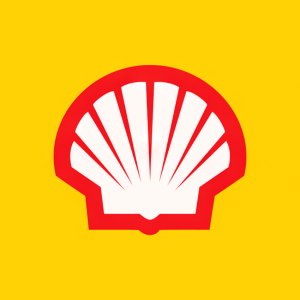Shell Science Lab Regional Challenge Announces 2022 Grand-Prize Winners
Shell USA Inc. and the National Science Teaching Association (NSTA) announced the winners of the Shell Science Lab Regional Challenge, recognizing innovative K–12 teachers enhancing science education. The grand-prize winners include Gwenevere Jones and Jennifer Murphy-Feagin from Craighead Elementary, Samantha Mendenhall from Port Allen Middle School, and Jessica Thomas from Pecos High School, awarded lab makeover support packages valued at $10,000 and $15,000 respectively. They will also receive $5,000 to attend a future NSTA conference.
- Recognition of innovative teaching methods in STEM education.
- Financial support of $10,000 for elementary and middle school winners, $15,000 for high school winner.
- Additional $5,000 for each winner to attend NSTA conference.
- None.
“We are extremely proud of this year’s grand prize winners. Their innovative approaches, creative ideas, and unwavering commitment to give their very best to their students—and to the community, as they engage and motivate the STEM leaders of tomorrow—is commendable and inspiring,” said Dr.
To enter the Shell Science Lab Regional Challenge, K–12 science teachers located in select school districts near
“The Shell Science Regional Challenge grand-prize winners have displayed ingenuity, expertise, and professionalism well beyond ordinary expectations,” said NSTA President
2022 Shell Science Lab Regional Challenge Grand Prize Winners
Elementary School Level:
Jones’s teaching philosophy is that science is best taught through multisensory learning lessons. She believes hands-on learning is one of the most effective ways to teach science, and the teacher’s role should be that of a guide, a facilitator, and to some degree, a mentor. She uses a number of strategies to teach science, including hands-on learning through experiments and having students design their own learning: Students develop their own questions, then use these questions to design their experiment. Jones strives to increase students’ critical-thinking skills through the process of questioning. She notes that a lab upgrade gave students opportunities to experience science hands-on, and contends that students need exposure to a lab that has the materials that allow them to conduct learning experiences, collect data, and extrapolate on the data conducted. This benefits them across the curriculum. Jones adds that the upgrade gives students a front-row seat to experience STEM careers that will benefit them in the future.
Middle School Level:
Mendenhall believes students learn science better when lessons offer connections to the real world. In her classroom, she infuses many real-world examples and current events to support her students’ learning. Some of her classroom strategies include cooperative learning, inquiry-based learning, and technology in the classroom. Instruction always revolves around her students. She plans lessons with all of them in mind to ensure all students learn, and uses differentiation strategies to accomplish that. The update to her science lab has changed her science classroom, allowing her to add many materials and equipment, and increasing the quantity of certain materials so there are sufficient amounts for multiple use across campus. Mendenhall will use the grand-prize award to share with others the importance of STEM. She will inform other educators about how her classroom uses real-world situations to learn and understand content, making connections with students’ lives to explain important concepts. Sharing the meaningful learning happening in her classroom can promote an awareness of STEM and the important connections that can be made.
High School Level:
Thomas maintains that most students learn best through a variety of activities, including a hands-on approach. As the facilitator of class projects, she expects students to explore and learn from their own experiences while she makes suggestions and provides feedback. Throughout these projects, students use varied academic skills such as communicating, questioning, and evaluating their progress. Thomas’s school has been exploring the possibility of shifting its Principles of Applied Engineering classes to eighth-grade students, a change that would enable the school to offer even more advanced courses at the high school level. When this change is fully implemented, many project materials will be given to the middle school students. Those materials will need to be replaced at the high school level using grant funds. The award has helped Thomas completely transform her classroom. The updated workstations better allow students to work in large groups, as well as store their project materials for the science lab. In addition, the NSTA membership and website have enhanced her science teaching skills and helped her communicate with teachers in her subject area. Through her NSTA membership, she has connected with STEM teachers from all over
In addition to the school science lab makeover support package—valued at
The grand-prize winners and their principals were formally recognized for their achievement during an award ceremony that took place during the
For more information about the Challenge, visit the competition website.
About
FOR INQUIRIES CONTACT:
About NSTA
The
View source version on businesswire.com: https://www.businesswire.com/news/home/20220510005220/en/
(703) 312-9211
kfalk@nsta.org
Source:
FAQ
What is the Shell Science Lab Regional Challenge?
Who were the winners of the 2022 Shell Science Lab Regional Challenge?
What financial support did the winners receive?
Where was the award ceremony for the winners held?







